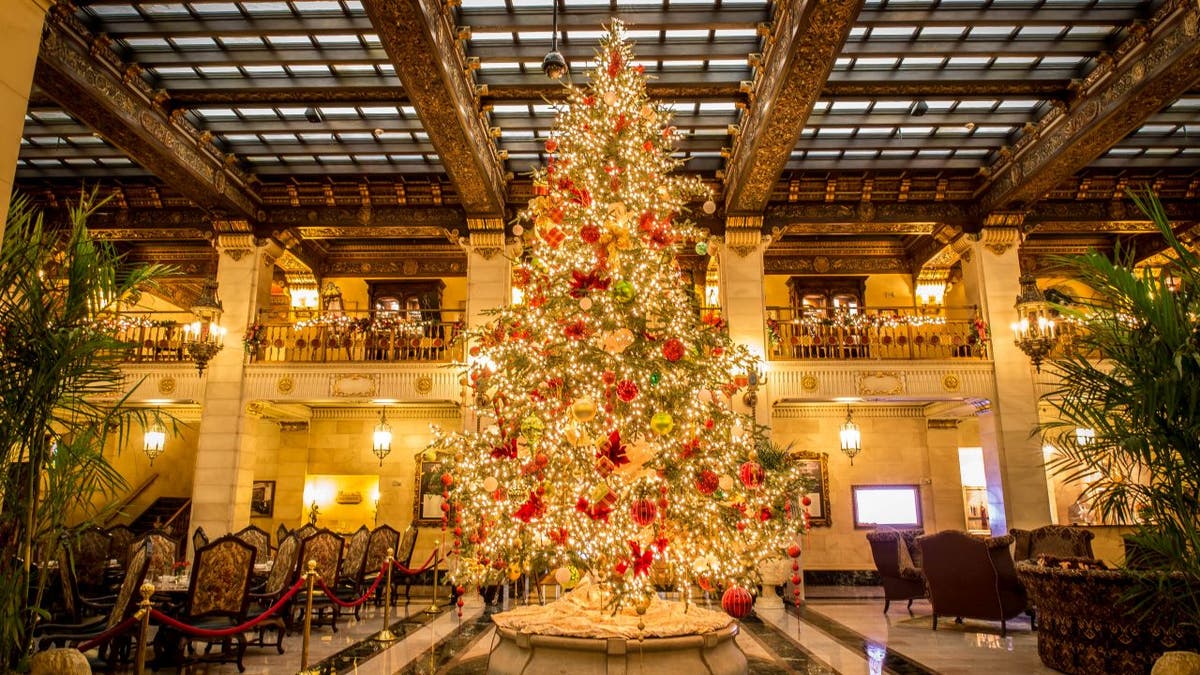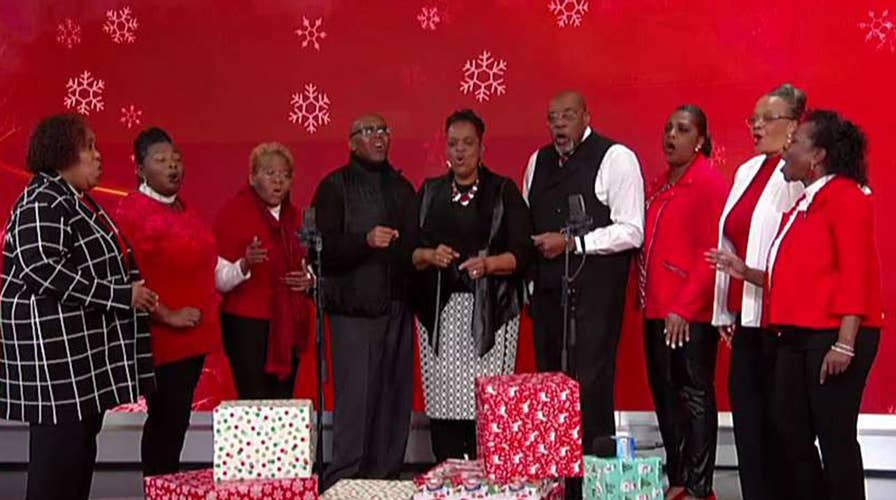DOXA gospel group performs 'Joy to the World' on 'Fox & Friends'
Singers from Reading, Pennsylvania stop by Fox News before opening up for the Rockettes at Radio City Music Hall.
If your Christmas celebrations are anything like mine, you’ll likely start singing Christmas songs this week. Or maybe strains of "Silent Night" and "It’s the Most Wonderful Time of the Year" have been reverberating through your house for weeks already. Either way, one song that you’re sure to hear this season is "Joy to the World."
But what if I told you that this old standard isn’t a Christmas carol? Not technically at least. And what if I told you that it was actually written to be sung before Christmas?
This Sunday, Christians around the world will mark the first day of Advent, the four weeks that precede Christmas. Historically, this time has been devoted to reflection, longing, and even lament as we assess both the state of our own hearts and world around us. It is time to prepare for the coming of the Savior by remembering why we need a savior in the first place. Because of this, Advent is also a time that Christians look forward to the day when the baby in the manger will finally make all things right.
Over the years, traditions have changed and adapted. Elements of fasting have given way to feasting so that today, Advent is more often a kind of soft opening for Christmas. But back in the early 18th Century, when pastor and hymn writer Isaac Watts was leading a nonconformist congregation in London, Advent was decidedly about the longing for goodness and justice to reign.

Christmas Tree Elegance at The Historic Davenport Hotel, Spokane, Washington (Visit Spokane)
During this time in history, it was no small thing to be a pastor operating outside the established Church of England. Religious liberty and the freedom to worship within the dictates of one’s own conscience didn’t exist the way we understand it today. In fact, Watts’ own father had been jailed at different points for his views. And despite his intellectual brilliance, Watts couldn’t attend Oxford or Cambridge because he wasn’t Anglican.
It was in this larger context that Watts penned the words so many of us know and love:
Joy to the world! the Lord is come;
Let Earth receive her King;
Let every heart prepare him room,
And heaven and nature sing,
And heaven and nature sing,
And heaven, and heaven, and nature sing.
Watts based the text of "Joy to the World" on Psalm 98 which says that all creation sings the praises of its true king. That’s where the "heaven and nature sing" part comes in. Even though the psalmist uses decidedly poetic language ("the rivers clap their hands’ and "the mountains sing together for joy"), the reason for the earth’s joy is clear. The earth praises the king of creation because he is a good and just king. He rules "in righteousness and the peoples with equity" (Psalm 98:7-9 NIV).
In fact, Watts picks up this theme in the final verse of "Joy to the Word" when he writes:
He rules the world with truth and grace,
And makes the nations prove
The glories of His righteousness,
And wonders of His love,
And wonders of His love,
And wonders, wonders, of His love.
CLICK HERE TO GET THE OPINION NEWSLETTER
So what does this all have to with Advent? And maybe more to the point, why do we sing this curious carol at Christmas?
As we enter Advent this year, it’s not hard to see all that’s wrong with the world. We see the injustices, the lies and the chaos. We see all the ways that the world is broken. When we look to the future, it’s easy to lose hope and despair. It’s easy to feel like we’re responsible to set things right — that somehow it’s up to us to "fix" the world.
CLICK HERE TO GET THE FOX NEWS APP
But the message of Advent and of Christmas is this: Hope does not rest in human ability, intelligence or gumption. It does not rest in earthly kings or leaders. Instead, for Christians, hope is found with the king of creation. Hope resides with the One who is just, true, loving and filled with grace. Hope lies with the baby in the manger.
Advent invites us to live in this reality — to pause, reflect, and name all the ways we are not enough while he is. It invites us to place our trust in someone outside ourselves who is kinder, more loving, more truthful and more just than we could ever be. And then Advent invites us to lift our hearts and lift our voices, to sing with all creation, "Joy to the world! The Lord is come!"











































